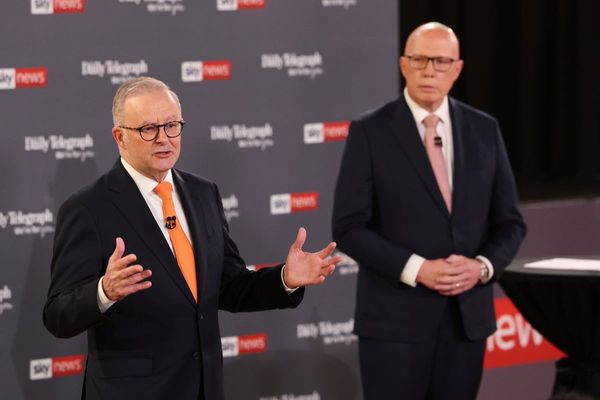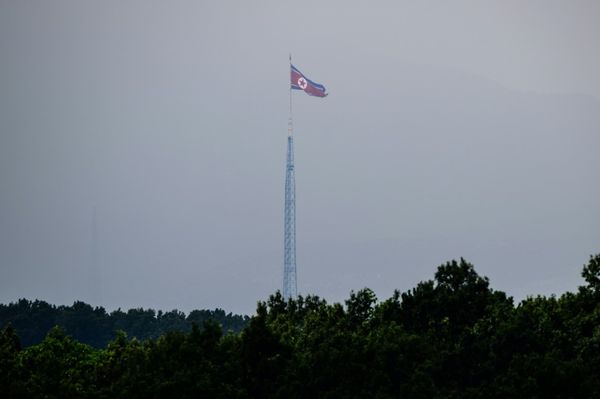
Saint Petersburg, Russia – The tense standoff over Ukraine shows no sign of calming.
On Saturday, unnamed American officials told reporters that Russia has assembled 70 percent of the forces it would need to invade its southwestern neighbour.
However, the US claims have been met with scepticism throughout the standoff, particularly in Ukraine where defence officials say talk of a large-scale attack is driven by “internal and geopolitical processes” in the West.
Ukrainian President Volodymyr Zelenskyy is reportedly frustrated by US President Joe Biden’s characterisation of an invasion as “imminent”.
And a report released by the Centre for Defence Strategies, a think tank headed by Ukraine’s former Minister of Defence Andriy Zahorodniuk, in January concluded that a total invasion, with the occupation of major cities such as Kyiv, was highly unlikely.
At the same time, most observers agree that Ukraine nevertheless faces other threats.
Al Jazeera spoke to Alexander Khara, a Ukrainian diplomat and former assistant defence minister, who now sits on the Centre’s board.
Al Jazeera: What do you think is the possibility of a Russian invasion of Ukraine?
Alexander Khara: First of all, we should not talk about an invasion of Ukraine, because we’ve been under Russian aggression since 2014. That’s why it’s more correct to talk about a full-fledged or all-out war, or some new front lines on the border with Russia and some proxy states like Belarus, or illegally-occupied Transnistria [an unrecognised but de-facto independent, pro-Russian territory on Moldova’s border with Ukraine].
If we’re talking about the probability, nobody can say for sure because nobody knows what’s inside [Russian President Vladimir] Putin’s mind. But we are closely watching the movement of troops and weaponry still on our borders, in the occupied territories and in Belarus, and certainly, there are some worrying signals.
Russia is not going to de-escalate, so the threat of invasion is still there. There are several variants or options that the Russians can apply to Ukraine, from escalating on the temporarily occupied territories of Donetsk or Luhansk, which is the most, let’s say, “innocent” way, of not [openly] showing the signs that Russia is there.
Russia is denying that it’s behind the proxy forces in Donetsk and Luhansk.
But there are some other options, like cutting off Ukraine from the Black Sea – which would undermine the Ukrainian economy and strike hard on Ukrainian statehood – to an invasion from the north, because Belarus is closer to the Ukrainian capital, Kyiv.
But if we are weighing all those options, we see that none of them are satisfactory for Russia, because we in Ukraine are pretty much ready.
Not just the armed forces, but Ukrainian society, volunteers, and the Ukrainian government, are showing readiness.
And we have huge international support [from the US and Europe], with [a sanctions] package that can destroy the Russian economy if a single Russian soldier would breach Ukrainian borders.
We can’t judge which option the Russians will choose, but we’re preparing for the worst.
Al Jazeera: What assets does Russia have?
Khara: They have a lot of tools at their disposal. But let me remind you of the document dated back to 1974, the United Nations General Assembly Resolution 3314, which defines aggression as “sending by or on behalf of a state of armed bands, groups, irregulars or mercenaries, which carry out acts of armed force against another state”.
Hybrid war is a fancy term being used recently, but in reality, it was defined even in that period of time, some 40 years ago.
Certainly, Russia can [attack], but on the other hand, we are pretty much prepared.
We understand that they can try to disrupt us by sending in sabotage groups onto our territory, which is a strong possibility because we heard a warning from Western intelligence that the Russians are preparing a false-flag operation to use as [a provocation].
We understand that we are vulnerable – we are almost encircled by Russia and their proxies.
To the north, it’s Belarus. Then we have a lengthy border with Russia, which is a state border, then we have occupied territory – so Donetsk, Luhansk, and Crimea – and then we have Transnistria, that is the Russian-occupied territory of Moldova.
They can act from any direction. But such a move, and given our preparedness and the preparedness of the West to crush the Russian economy, would push Putin to act in a grey zone, like “terrorist” acts, cyberattacks and other things, with the aim to undermine the government of Ukraine, divide society and try to exploit those possibilities to get some concessions from Ukraine, and from the US as well.
Al Jazeera: If pro-Russian forces try to claim territory beyond Donetsk and Luhansk, what kind of welcome would they receive?
Khara: They will meet up to 260,000-strong armed forces and territorial defence.
We have some 400,000 veterans who went through the war in Donbas – they have combat experience and certainly will not have mercy towards the invaders. I’m not talking about the civilians.
It’s going to be a bloody hell for the Russians. See, if they decide to cross [the border] and especially if they then decide to enter our cities… Thanks to the British, we have pretty powerful anti-tank missiles that can be used in urban warfare, and certainly, we have enough of our own to deploy.
Even if you look at Russian-speaking cities like Kharkiv or Odesa, people are not going to convert their flourishing cities into what Russia has been doing with Donetsk and Luhansk for eight years.
Russia should have no illusions that Russian-speakers or ethnic Russians are going to welcome them on our territory – they will be fighting. And actually, if you have a look at the language composition of those who are now in the trenches of Donbas from the Ukrainian side, the majority of them are Russian-speakers.
We have no choice. War was imposed on us, we are going to fight back, and I haven’t seen any sign of Ukrainian society being tired of war or [preparing to] capitulate to Russian demands.
Al Jazeera: Do you think there remains a possibility for a diplomatic solution?
Khara: Even though I’m a former diplomat, I believe there is no room for diplomacy with Russia at this point because, with Ukraine, Russia has twofold goals.
Firstly, to return Ukraine to its sphere of influence and limit our ability to choose our alliances and way of life. [Russia wants us to be] a sort of pro-Russian buffer zone, and that’s not going to happen.
Secondly, they’re trying to use Ukraine as a leverage against the European Union and NATO, to divide the Europeans between themselves and Europeans from the Americans.
After the Russians published [their security demands], they converted this so-called crisis into something much bigger than Ukraine.
[US Secretary of State Antony] Blinken said that what’s going on in Ukraine transcends Ukraine. It’s a crisis of Europe’s security architecture, and it’s about the principles of international law in general.
This is a global crisis and certainly a severe European security crisis.
We cannot negotiate with Russia – the issues are of our sovereignty, of our people’s will to live in a free democratic country aligned with the Western civilisation rather than Russia.
I see no prospect for these negotiations. To confirm my words, I’ll quote [Russian Foreign Minister Sergey Lavrov], who said if Zelenskyy wants, he can come to Moscow, Saint Petersburg or Sochi to talk about the normalisation of our relations – but if he wants to talk about Donbas, he needs to address the Minsk process.
The Russians are saying that they are not part of the conflict, and they are not going to talk about security guarantees [with] Ukraine – they are trying to do it with the Americans.
Even the Russian foreign minister said that they have no appetite to talk to Ukraine and to settle our troubles. The various forms of war, like the low-intensity conflict in Donetsk and Luhansk; like illegal annexation of Crimea and the territorial waters of the Sea of Azov; the huge number of cyberattacks, propaganda, the saboteurs; and other acts committed against Ukraine almost on a daily basis, as we speak.
Police in Ukrainian cities are receiving calls about bombs in schools and public buildings. Since January, our police received something like 300 calls of false threats.
We’ve been experiencing cyber-attacks – the most recent one was on January 14, some 70 Ukrainian governmental agencies lost control over their websites and their networks. And even though this attack was attributed to a Belarusian hacker group, they are related to the Belarusian KGB and the Russian FSB.
The war that Russia is waging against us is something we need to talk about.
Editor’s note: This interview was lightly edited for clarity and brevity.







